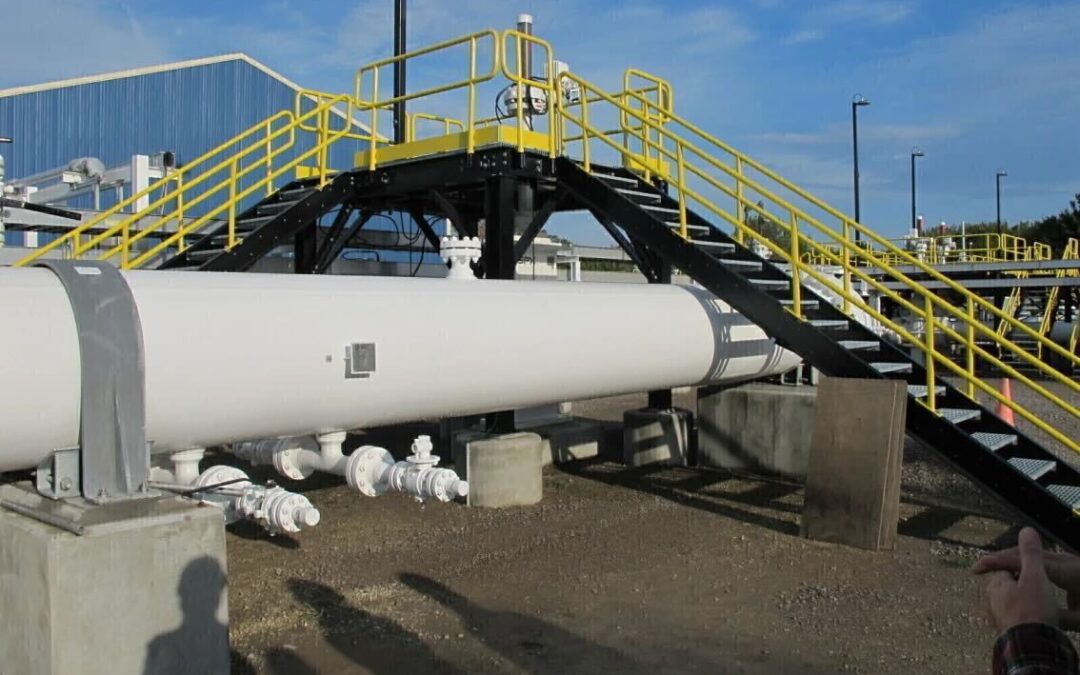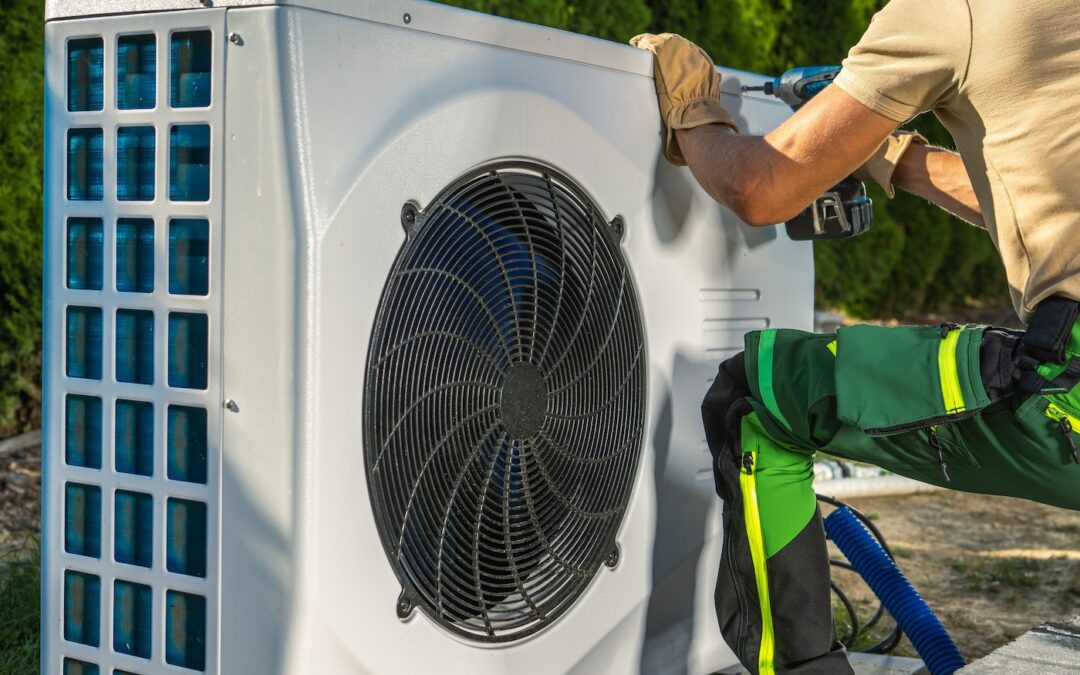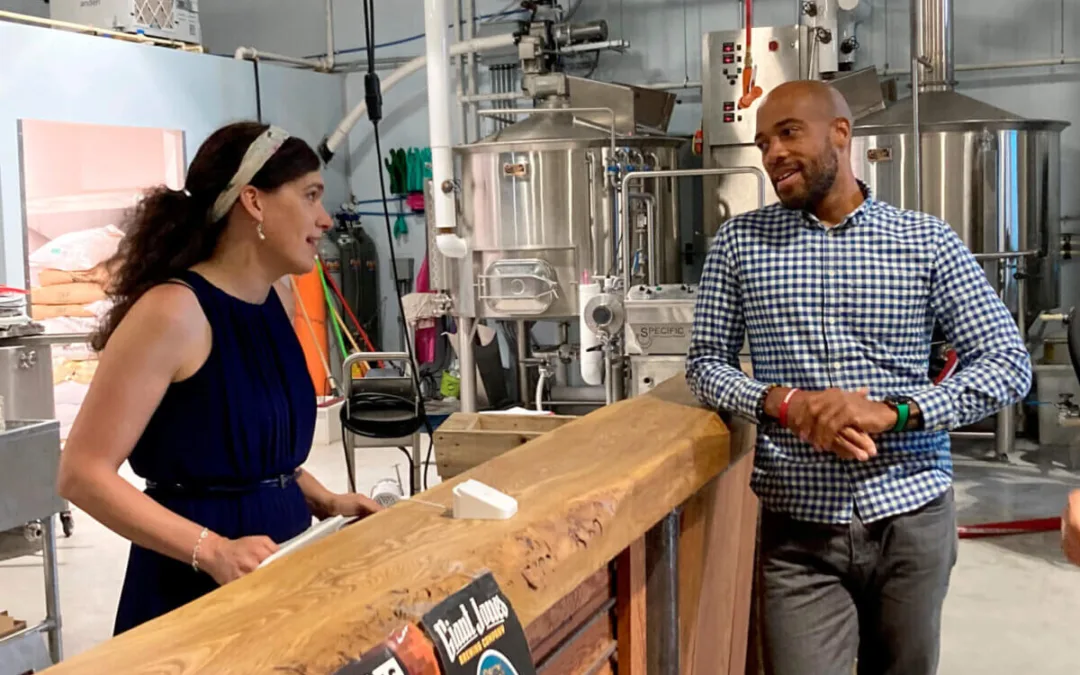
#image_title
Melissa Gavin brought a global issue down to the hometown level.
[Editor’s Note: For more stories in our “No Time to Lose” series, see our hub HERE.]
After watching the day’s weather report, Melissa Gavin of Cross Plains had heard it was supposed to rain on that August day in 2018.
But as she watched a downpour continue hour after hour, Gavin realized this wasn’t just any rain. The road leading to her house transformed into a waterway, becoming impassable to vehicles.
Fearful of the weather, Gavin and her family descended into the basement. As they looked out the windows they saw fish swim by, evidence of the fast-rising water that was quickly becoming a flood.
Some of Gavin’s neighbors waited on their rooftops in the rain, hoping to be rescued as the water level continued to climb. But emergency vehicles that had shown up at the scene couldn’t traverse the road leading to those residences because the water was too high.
“All I could think was ‘This is climate change,’ ” Gavin said of the deluge. “This is what we can expect to see more of. This is just the tip of the iceberg unless we do something now.”
That storm was one of four during an 11-day period that month. Those severe weather events broke rainfall records throughout Wisconsin. In Gavin’s home county alone, flooding related to those storms caused mass evacuations, damaged 1,500 homes and caused an estimated $154 million in total property damage.
Unfortunately, those storms and the damage they caused aren’t an anomaly. Records show that across the Midwest, the amount of rain from large storms has increased by 37 percent during the past 50 years.
Flooding in recent years has not only caused hundreds of millions of dollars in damages in Wisconsin but has significantly delayed plantings and harvesting by the state’s farmers.
After the storm that nearly washed away her home, Gavin decided to take action regarding climate change. At a meeting of the village board where she lives, Gavin asked board members to adopt policy to address climate change.
When a board member asked her what that might entail, Gavin facilitated a public forum to discuss the topic. That event led to the formation of a committee in the process of developing a plan to reduce the threat of climate change by increasing sustainability and reducing waste in their hometown.
Despite the flood two years ago that nearly washed away her neighborhood, Gavin said she is optimistic that climate change can be addressed.
“When you get a lot of people together who care about an issue, they can come up with some good ideas,” she said.

Wisconsin agency issues first round of permits for Enbridge Line 5 reroute around reservation
MADISON, Wis. (AP) — Enbridge’s contentious plan to reroute an aging pipeline around a northern Wisconsin tribal reservation moved closer to reality...

Think this is hot?! The number of 90+ days is expected to triple in Wisconsin
We expect summers to be hot. But dangerous temperatures are an entirely different beast. Every year, approximately 1,300 Americans die from exposure...

Here’s how to lower your home’s energy bill under the Inflation Reduction Act
It begins with assessing your home’s current energy use, planning improvements, then getting connected to the credits and rebates that can create...

Wisconsinites need to know how they can benefit from Biden’s clean energy efforts. Mandela Barnes is on it.
The one-time head of the governor’s climate change task force now helps connect Wisconsinites to historic levels of funding for energy efficiency...




